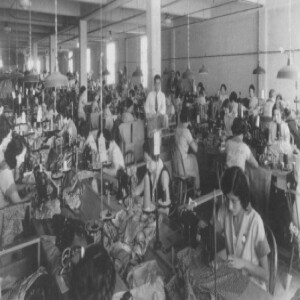Episodes

Tuesday Oct 08, 2024
October 8 - Locked Out and Ready to Fight
Tuesday Oct 08, 2024
Tuesday Oct 08, 2024
On this day in labor history, the year was 1933.
That was the day garment factory owners locked out dressmakers in several shops throughout Los Angeles.
The women garment workers, overwhelmingly Mexican, had been organizing with the ILGWU for over a month.
They began conducting strikes at selected shops the previous month to press their demands.
The women wanted union recognition, a thirty-five hour workweek, an end to homework, shop floor committees, a guaranteed wage and more.
Historian Douglas Monroy observes that their demands reflected the harsh working conditions they faced.
It was a volatile, competitive, seasonal industry.
Businesses worked tirelessly to undercut each other and job out the work.
Women workers were routinely unemployed or underemployed, subject to widespread wage theft and discrimination.
They were frustrated by promises of the new National Industrial Recovery Act, which promised the right to organize but held no provisions for enforcement.
Employers flaunted the new legislation and continued to discharge workers for union activity.
When the employers forced a lockout, Local 96 looked to the AFL’s Central Labor Council to sanction a general dressmakers strike, which started four days later on October 12.
As many as 3,000 Latina strikers maintained solid picket lines, despite dozens of arrests.
ILGWU organizer Rose Pesotta arrived from New York to help with food distribution and packing the picket lines.
The rank and file leadership produced a bilingual strike bulletin and made daily radio announcements.
The strike ended in arbitration that conceded few gains to the garment workers.
But the women of Local 96 continued to organize throughout the Los Angeles area.
They led a series of strikes that finally won the closed shop in 1936.


No comments yet. Be the first to say something!